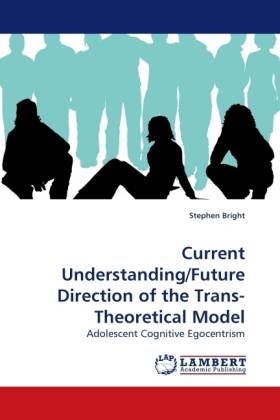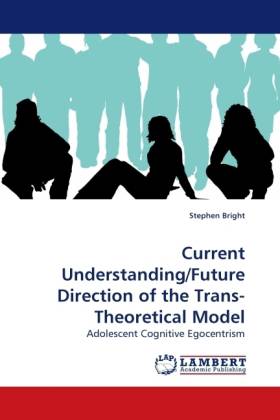
- Afhalen na 1 uur in een winkel met voorraad
- Gratis thuislevering in België vanaf € 30
- Ruim aanbod met 7 miljoen producten
- Afhalen na 1 uur in een winkel met voorraad
- Gratis thuislevering in België vanaf € 30
- Ruim aanbod met 7 miljoen producten
Zoeken
Current Understanding/Future Direction of the Trans-Theoretical Model
Adolescent Cognitive Egocentrism
Stephen Bright
Paperback | Engels
€ 48,45
+ 96 punten
Omschrijving
Given the high incidence of mortality attributable to diseases often preventable through behavioural change, it is important that models of behaviour change and intervention be continually evaluated. As such, the Trans- theoretical Model (TTM) of behaviour change is reviewed within this book. There is much empirical support for the TTM; however, several critiques are noted. As a model for intervention, the TTM appears inadequate when applied to younger populations. Cognitive development is proposed to account for this age discrepancy. One such construct, adolescent egocentrism (i.e., the imaginary audience and the personal fable) is explored in relation to both unhealthy behaviour participation and change. It appears plausible that the cognitive distortions associated with this construct could affect individuals utilisation of those cognitive processes of change stated within the TTM as being necessary for successful behaviour change. Whilst providing some explanatory value when integrated with the TTM, conceptual limitations pertaining to adolescent egocentrism precludes comprehensive theoretical implications.
Specificaties
Betrokkenen
- Auteur(s):
- Uitgeverij:
Inhoud
- Aantal bladzijden:
- 64
- Taal:
- Engels
Eigenschappen
- Productcode (EAN):
- 9783838323466
- Uitvoering:
- Paperback

Alleen bij Standaard Boekhandel
+ 96 punten op je klantenkaart van Standaard Boekhandel
Beoordelingen
We publiceren alleen reviews die voldoen aan de voorwaarden voor reviews. Bekijk onze voorwaarden voor reviews.











